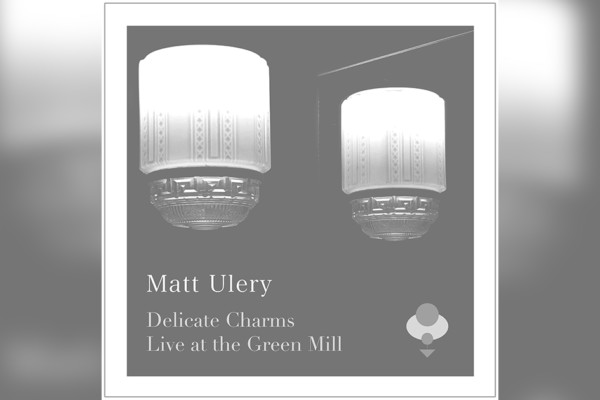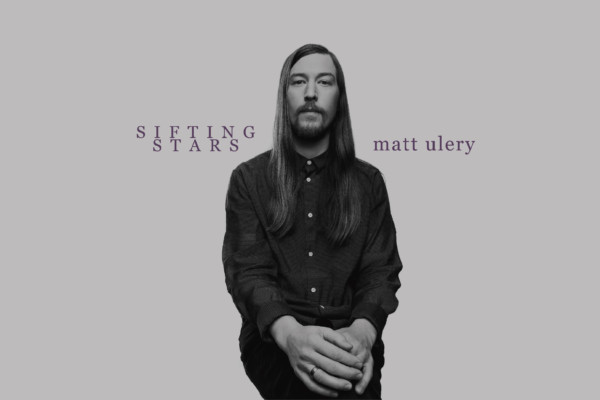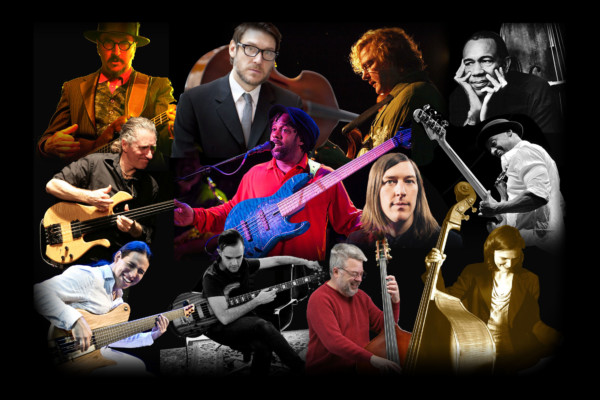Looming Large: An Interview with Matt Ulery
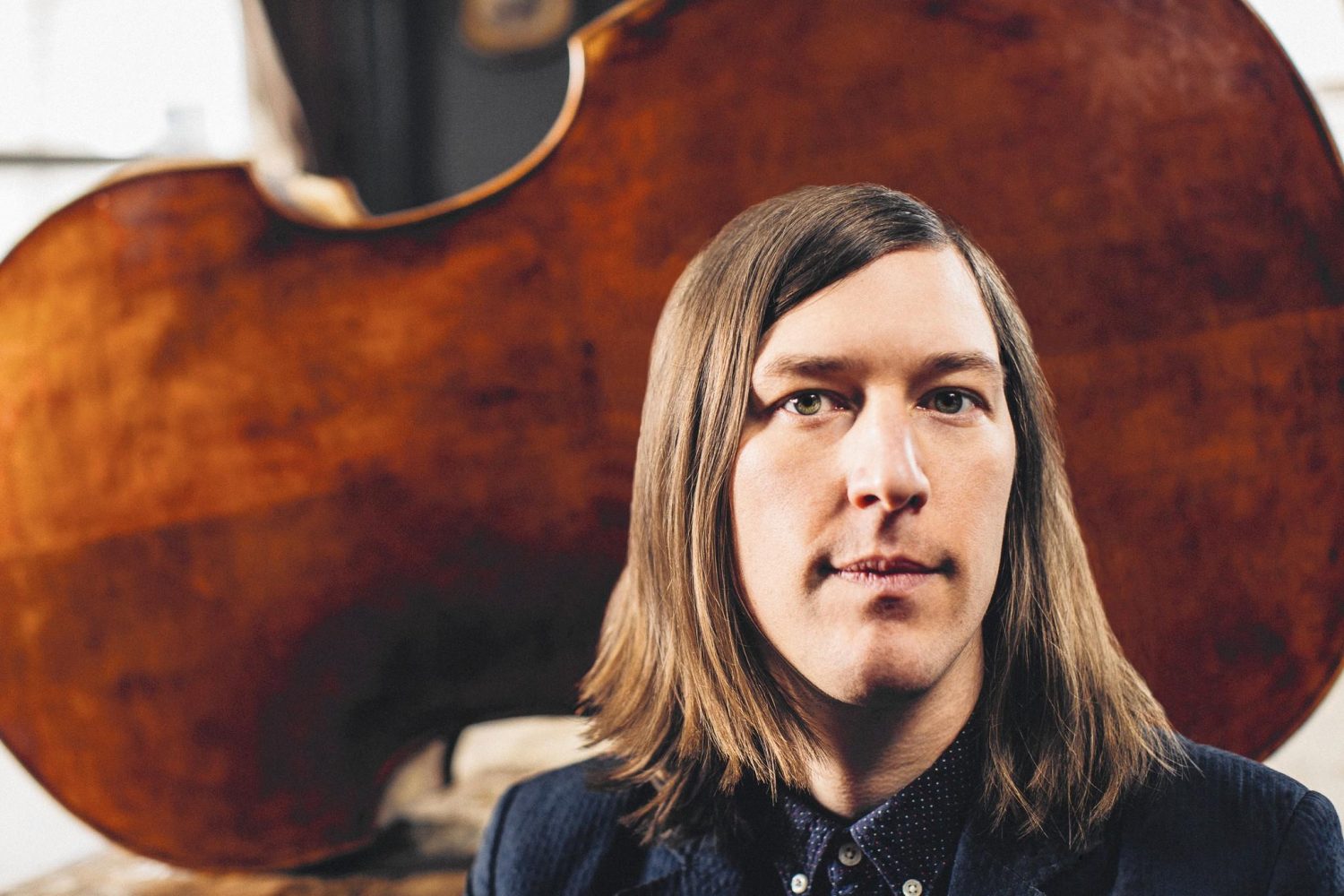
Matt Ulery has just released Festival, an ambitious album that features three distinct musical formats. Billed as Ulery’s Loom/Large, the core of the album features his regular Loom quintet bookcased by a jazz orchestra and his “festival” band. While each band brings a different sound to the table, the organic nature of the bassist’s compositions tie the 13-song collection into a cohesive and engrossing experience.
We caught up with Ulery to get the scoop on the new album, his ideas on composition, and his love affair with Chicago.
Just about everything written about you online mentions that you are Chicago-based. Is that a big deal for you?
It’s cool you noticed that. It is a big thing for me. I’m originally from Rockford, Illinois, but I’ve been in Chicago a long time. I’m all about talking about the scene here. There’s so much great stuff going on and it’s getting better and better. Great players are moving here and staying here. It’s a beautiful scene… Scenes, I should say, because there are many, many circles. I want to talk about that. I want to talk about my friends and the music they make.
Who are some Chicago guys we should be checking out?
Oh man, there are so many. For starters, the piano player I collaborate with is Rob Clearfield. He’s on all my records. Jon Deitemyer, my drummer… basically everyone on any of my records has their own stuff happening. So many people… Dave Miller, Quin Kirchner, Greg Ward, Katie Ernst… I could go on and on. There’s just so much happening, that’s the beautiful thing about it.
Do you think the pull for any kind of jazz music to be coming from New York is overrated?
I don’t think it’s overrated in that it is the highest concentration of really great musicians that play in the jazz spectrum or any other styles for that matter. There has always been that infrastructure there. It’s still a thing, but I don’t think it needs to be there like that. More and more it’s about regional playing and touring. Not that we all don’t get around here and there, but there are so many great smaller regional communities around the country – not to mention the rest of the world – that are doing this kind of music.
Chicago is also a big city and there’s a pulse for people to go there. It’s the same concept at a different scale. New York is very cool. They have a lot more going on, but there are different ways to look at that as a musician as somebody who is a full-timer making a living at it. It’s a consideration. As far as I’ve heard, it’s easier to do that in Chicago, which makes sense.
The scope of your new album, Festival, is incredible. It’s like you have three different bands on one album. What was the thought process behind that?
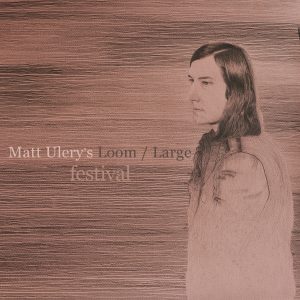 I’ve always got lots of cakes in the oven. [I’m always] writing different music and looking for the right musical home for what I’m working on. It’s fun to explore different ensemble possibilities.
I’ve always got lots of cakes in the oven. [I’m always] writing different music and looking for the right musical home for what I’m working on. It’s fun to explore different ensemble possibilities.
At the time I was ready to make another album, I was looking at what I had and how it was coming together. That’s basically how I work every year: I decide on the music I’ve been writing that year on how it will form into something more cohesive as an album for posterity. I just had a few different type of things that were cohesive, but not full-length types of presentations. That’s ok, though, because it doesn’t have to be an hour’s worth of music of one thing. I had some big band jazz orchestra music that I wrote, then I had the quintet stuff with Loom which is my regular working group. Live, I had recently begun playing tuba with that band and I had this music that was a certain vibe I was feeling, but different from the chamber music that band plays. I had Rob play pump organ. So those are the three groups.
It’s a long-winded way of saying I’m writing a bunch of different kinds of music and I’m ready to make another album of it. This is a jazz record, and the next one might not be a jazz record.
Even with the variety of groups, the album still feels like a singular experience, starting with the Large group. The first song is “The Peacocks”, which is an arrangement of a Jimmy Rowles song. What is it that makes you pick a certain song to arrange?
This is my first arrangement [of a song I didn’t write] that I’ve released on a recording. I’ve certainly done other arrangements of music, but in this case, this song is always sort of haunting me. It’s always there. It’s a beautiful tune. I do a lot of playing of jazz standards and Great American Songbook tunes and all that. I don’t release records like that because I write other music that I want to get out.
Nobody really plays [“The Peacocks”] in my experience. People don’t call that tune, yet it’s a regular AABA form and pretty standard. The original, which was on Stan Getz Presents Jimmy Rowles, featured Elvin Jones. On side B, Rowles sings a lot. It’s kind of an obscure record for me, but that song has always been super strong. Then Branford Marsalis has recorded it, Bill Evans recorded it. Those were other versions that were really beautiful for me every single time. So I just decided I wanted to do a big band version of it with strings and see what I could do with it. It just spoke to me more than any other tune, obviously, because I’ve never done another arrangement like that.
So it just has that certain unknown factor that drew you to it?
Absolutely. The emotional value of the bridge alone is high for me. You could analyze that in certain ways harmonically, but you don’t need to. It doesn’t matter. It just gives me a certain feeling.
I feel like a lot of your music is driven by a certain type of emotion. It seems to have a lot of intimate and introspective aspects to it. Do you feel like that’s your personality or is it just a part of you that comes out in the music?
It’s always hard to talk about that. Let’s face it: this instrumental music doesn’t necessarily have to be about anything and it doesn’t have to be programmatic. It doesn’t have to be conveying a certain emotion.
When I’m writing music, I care about the melody first and foremost. Melody rules all of my stuff. Harmony is part of that, which is the way that melody is contextualized. I’m always careful just to choose the right melody that’s finding its way. I suppose that it’s part of anyone that’s writing music, that they like the way it feels when they hear it, so you choose that. I say choose that because you’re listening to yourself improvising in real time when you’re writing music, then you’re editing in the writing process. You’re choosing your own ideas.
In regards to harmony, I was very careful to feel what it is when you go from one chord to the next chord as it contextualizes the melody. How does it feel? It’s not about trying to convey a certain thing. It’s the sound of me looking for the hipness in the music, and something that’s fresh that I would want to hear again in my head.
How do you think being a bass player affects your compositional thoughts?
That’s a good question. I feel like when I’m playing my own music for the first time, I’m approaching it just like other musicians are because I probably didn’t write it at the bass. I probably had some ideas and fleshed it out on the piano, most likely. So I’m approaching it as a fresh instrumentalist or a side-man, kind of.
I don’t know if [my bass playing] is really related. You know, there’s all kinds of ways to be a musician. Part of that is being an instrumentalist and a bassist and an accompanist: someone who understands how to shape the dynamic and the feel of the music. But then writing music is just a different expression. You get to express more of your melodic sense in a wider frequency range. You can play higher notes when you’re composing music for a violin than you can on a bass. There are certain melodies, or in more literal terms, intervallic relationships that make more sense in different frequencies. When you’re playing the bass, certain things are harder to hear because it’s contextualized by the bass. Oftentimes, it’s the lowest note. So I think it’s kind of unrelated, really. They’re both getting to the same point of dynamic expression, hopefully. It’s just different tools.
There’s only one track with spoken word, and it’s “The Silence is Holding,” which introduces the Festival band setup. Where did that song come from?
Well, I started playing tuba on the Loom gigs and I had Rob play organ. He plays pump organ on the record. I wanted to evoke a sort of dirge-type funeral band or any kind of functional music band. So I started saying, “We’re going to play festival tunes now with the tuba, organ, and horns.” That’s what sort of led to the name of the album.
I wanted to set the mood for that [set of music] with this poem I wrote. Not to go into the depth of all the meanings of all the lines of the piece, I do remember I wrote it in Poland when I was there on tour. I think I was having a week or so where it was impossible to flip time zones, so I just wasn’t sleeping at night. I ended up writing a bunch of poetry and this is part of it. It’s not a deep poem, but it sets a vibe.
I like to include a little bit of singing on every album, even if it’s an extremely small amount. It’s kind of like saying, “Hello, we’re here.” It’s like me being honest with my music. It’s a mood piece. Rob sounds sick on the organ on that piece. We did that after the session just as the last thing and then we said goodnight.
I love that whole section. It’s hauntingly beautiful. What made you pick up the tuba?
I’ve been playing tuba since I’ve been playing bass in seventh grade band. I did the whole high school band, concert band, marching band thing, but I never owned a tuba. I just used the school one. I played somewhat professionally during high school on that instrument. I didn’t play it in college so I didn’t have a horn for a while so I just didn’t play it. Somehow I got a horn and I just never set it up well, so I never got better. A couple years ago I decided to start playing so I set my horn up and started practicing more. I started bringing it to these Loom shows, and then I wrote this set of music.
Since then, that side of the record has fallen into this other band of mine called Pollinator. It’s a new brass band and I’m playing exclusively sousaphone. So I’ve really been getting back into the brass bass. I’m playing tuba on the record, but the sousaphone I have now is just a much better instrument so I’m playing that now.
I love playing all the basses. Upright bass, electric bass (I play a Fender P-bass), and then the sousaphone. They’re great doubles.
I went to New Orleans for the first time this summer and I was super inspired to play sousaphone.
I know! That same thing happened to me. I went there for my honeymoon five years ago. Every bass player was a tuba player or a sousaphone player, for the most part. [laughs] It was so cool. Very inspiring, and that’s what did it for me. It was like, “I play this instrument, I just have to get better at it!” And now I’m shedding every day.
Are you a big practicer?
I wish I made more time to practice my bass. I guess my main axe is the upright. I wish I made more time for it because I’m just playing it all the time, every day. It’s great and it’s the best way to practice playing music with other people. But I should make more time to practice on my own.
That’s two different aspects of practicing, right?
Yeah, because when you’re playing you’re always appreciating your own shortcomings. If you don’t address them in private then they might not go away as fast. If I’m not playing with my bow a lot, I need a day or two to get back into it to feel really comfortable.
One easy thing to remember is that if it sounds bad, don’t play it. [laughs] If someone asks you to play something and it’s sounding bad, find another way to do it. I also have a funny pet peeve in a jazz context about when the bass player doesn’t use the bow for a whole song and then decides to bow on the last note. Then they hold the note over after the rest of the band stops. A lot of great players did it a lot, too.
What advice do you have for bassists wanting to get into composing?
Obviously, composing requires various skill sets. You need some way to communicate the best way to other people to play your music unless you can compose music and record it and have that method. That’s great, too. Find the way you’re best at communicating music, whether it’s scoring or recording demos or whatever it is. Call upon the people and technology that you need for that and book it.
For example, if you’re like me, I write down music. I use Finale and type it up. Then I say, “Hey, I’ve got some new music. Can you guys come over on a specific day next month?” Or maybe I won’t even have it finished. It’s really about setting the goal. Put it in motion. Make it happen. That’s kind of a logistic thing.
If you’re looking to get into it as a bass player… this sounds like a terrible answer, but you just have to do it. If you want to get into it, just do it. One way to do that is to think of the kind of music you’d like to write and then try writing something like that. Say you like the tune “The Peacocks”. Try writing a song that sounds just like “The Peacocks”. You don’t have to worry about it being derivative or whatever because it will be and it had better be, because that’s how music works. It’s never not going to be you coming out. If you just sit down and do the work and listen to your musical ideas, then you’ll do it.
You have to set creative limitations. Don’t try just anything. Try doing something in particular. That’s always going to generate the most creativity. If you’re a creative person, you don’t want to be bogged down by all the possibilities.

